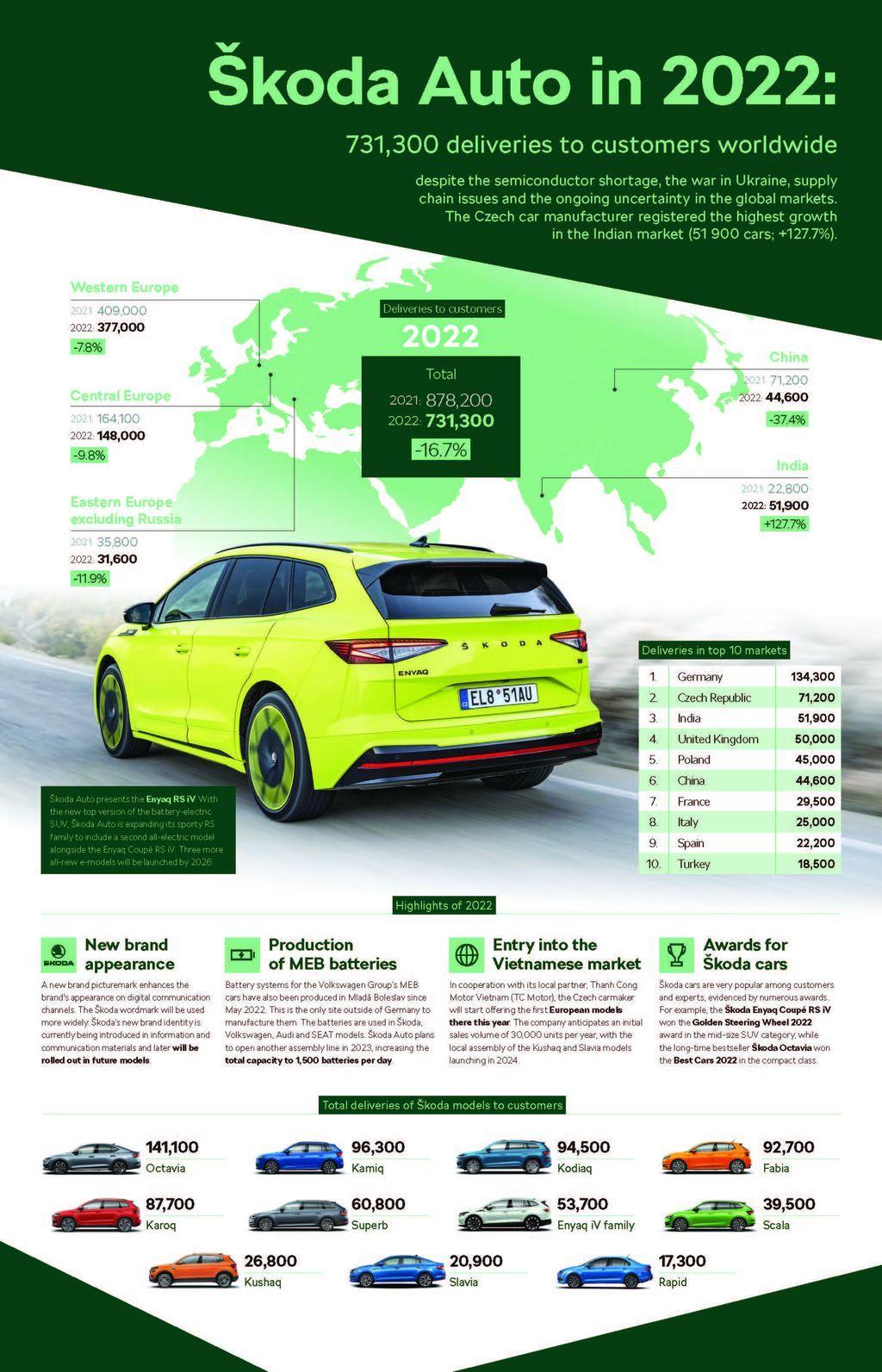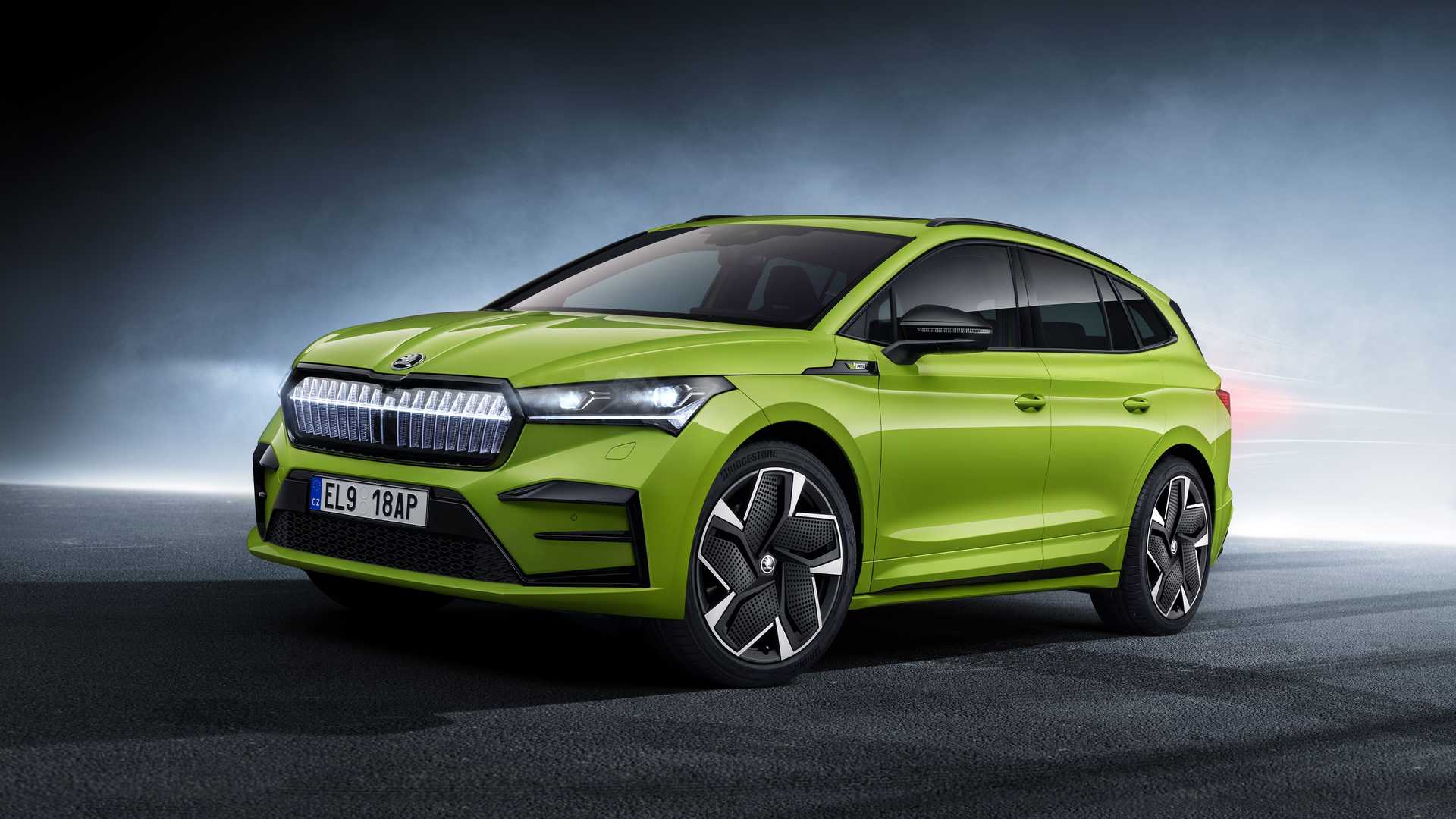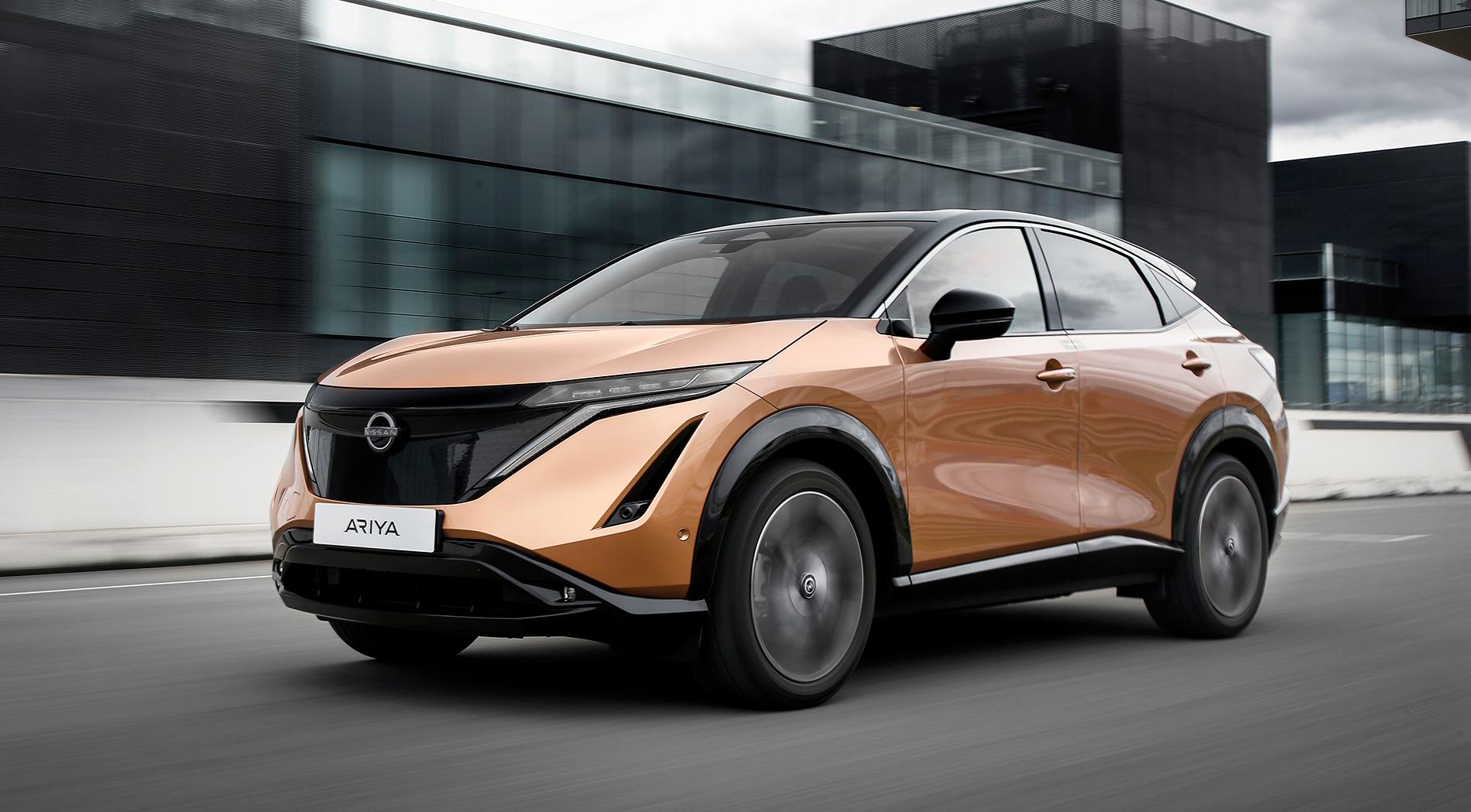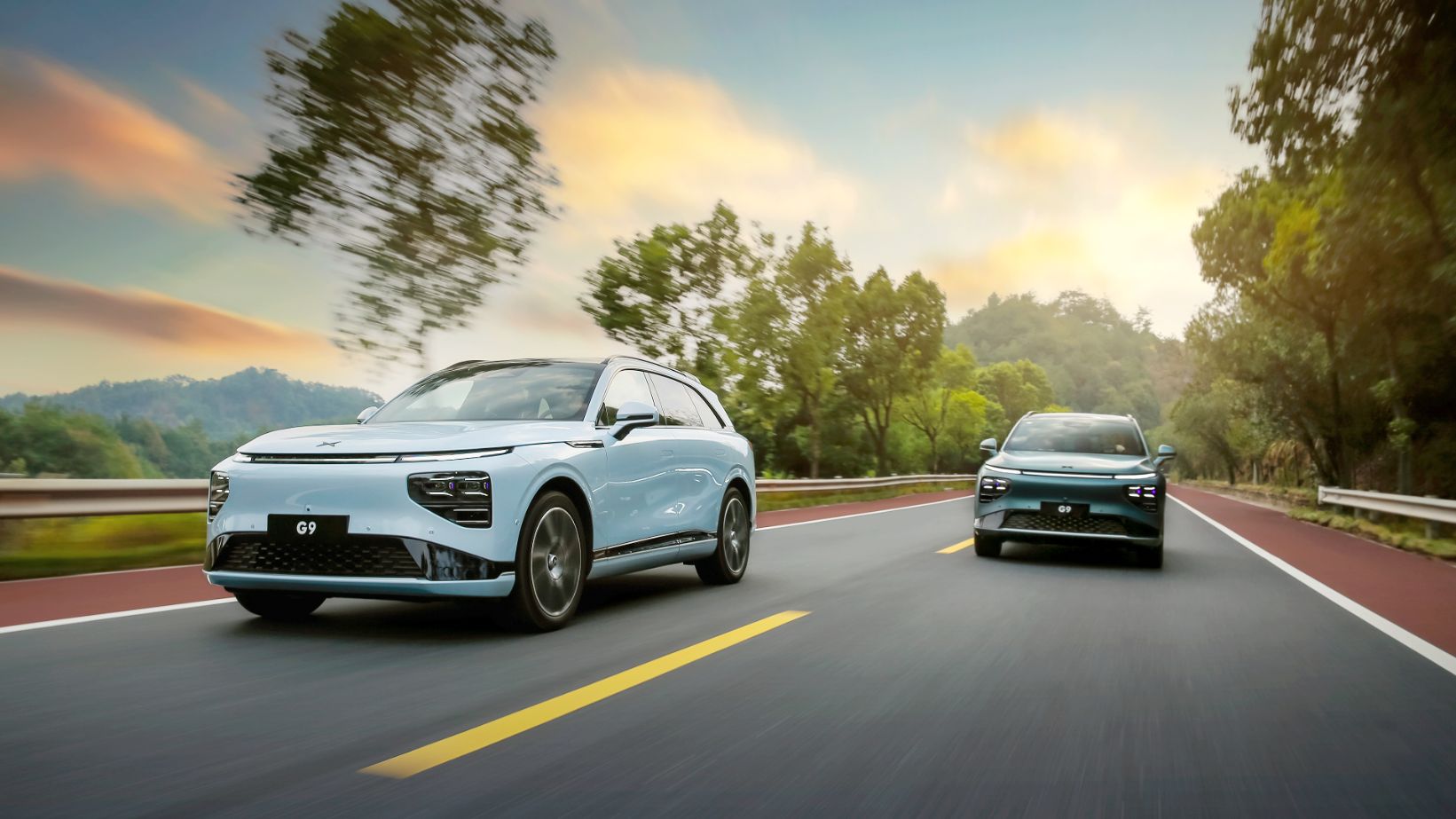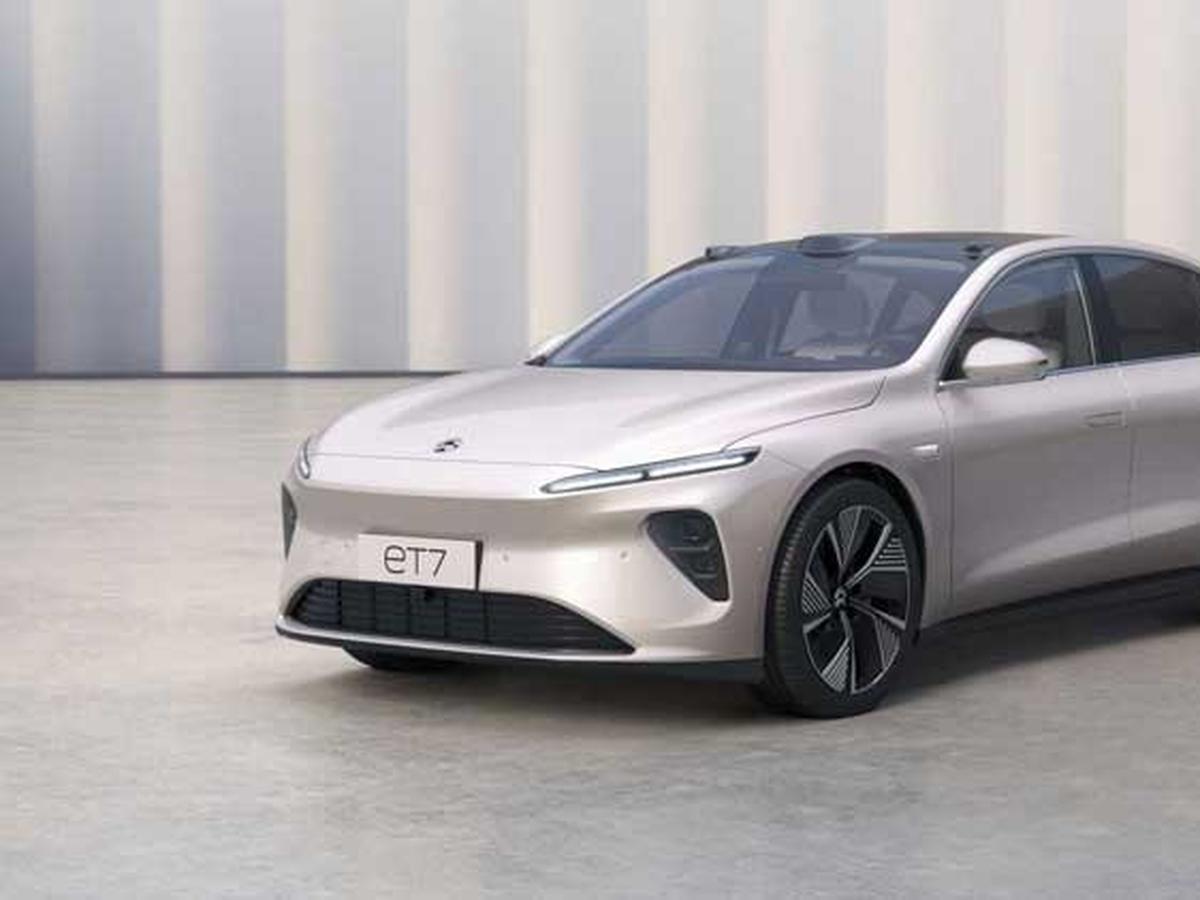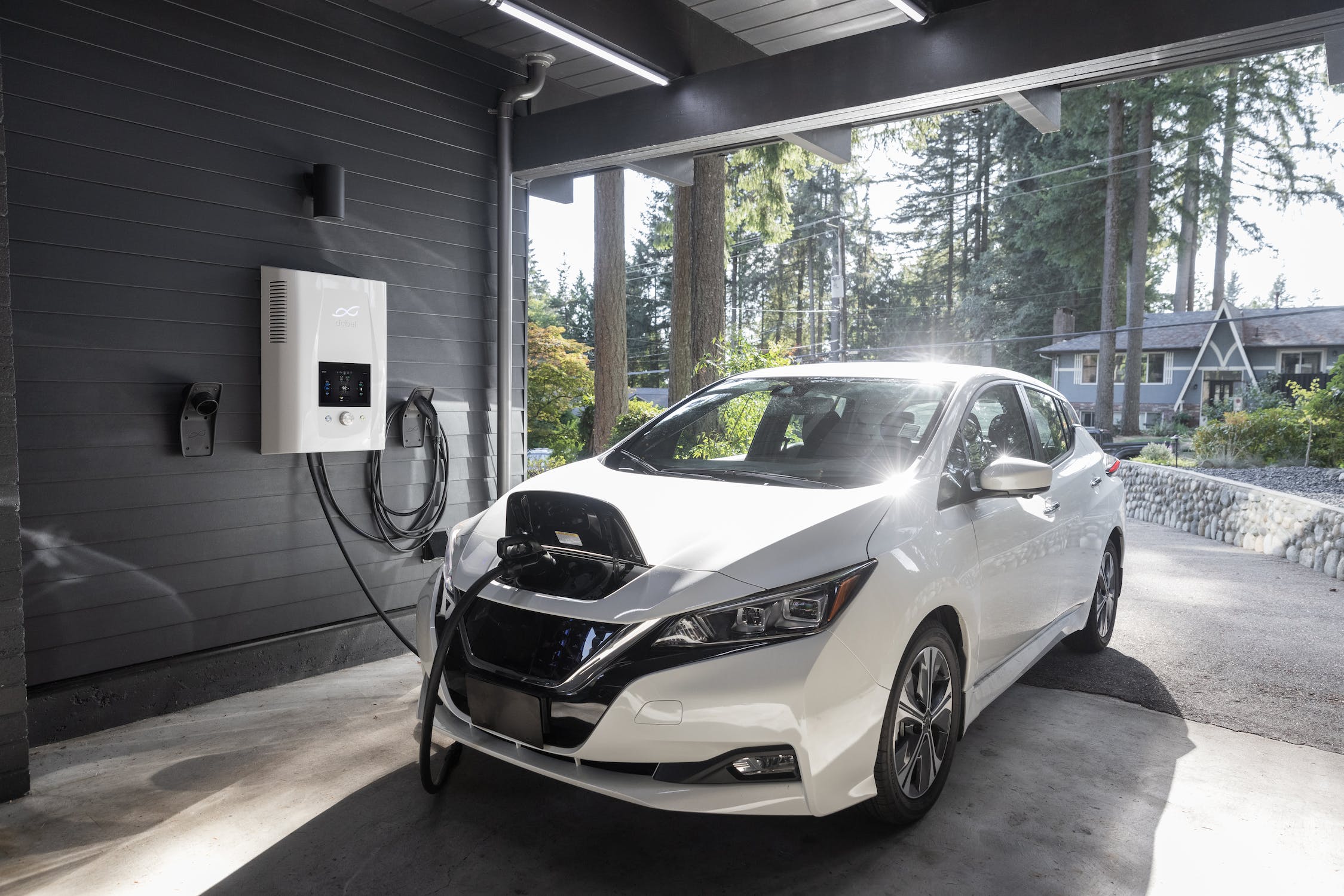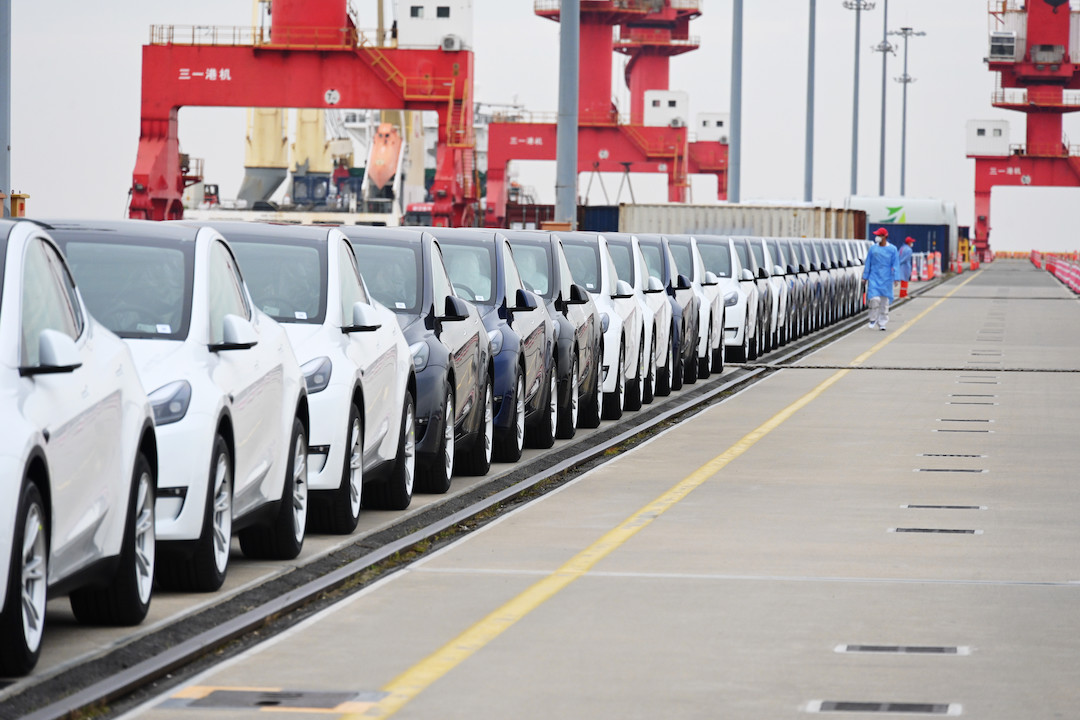The Skoda brand, a part of the Volkswagen Group based in the Czech Republic, had a challenging year as global car sales decreased by nearly 17% year-over-year to 731,300 units. However, the fourth quarter saw a positive trend with sales of 186,700 units, an increase of 5%.
In terms of electrification, Skoda also faced challenges. After more than tripling all-electric car sales in 2021, the brand slowed down significantly but still managed to maintain positive growth. In Q4 of 2022, the company sold 16,800 battery electric cars (BEVs), which is on par with the same period in 2021 (17,000 units and a quarterly record) and represents about 9% of the brand’s total volume.
The challenges faced by automakers have been numerous in recent years, including the coronavirus pandemic, the semiconductor shortage, and most recently the war in Ukraine, which caused manufacturing pauses and market uncertainty. However, it is hoped that things will improve in 2023 and we will see another step change similar to what was seen between 2020 and 2021.
In 2022, Skoda’s all-electric car sales amounted to 53,700 units, an increase of 9.3% from the previous year and 7.3% of the total volume. The brand’s BEV lineup currently consists only of the MEB-based Skoda Enyaq iV and its Coupe version, which are direct cousins of the Volkswagen ID.4 and ID.5, as well as the Audi Q4 e-tron and Audi Q4 Sportback e-tron. Sales of the Skoda Enyaq iV in 2022 amounted to 53,700 units, a year-over-year increase of 20%. The small Skoda CITIGOe iV, a direct counterpart of the Volkswagen e-up! and SEAT Mii Electric, was retired completely in 2021, with 4,400 units sold.
Unfortunately, Skoda does not report its plug-in hybrid car sales. However, the company plans to introduce three completely new all-electric models as early as 2026, with more to follow. The goal is to increase the BEV share in new car sales to 70% by 2030 and 100% after 2035.
